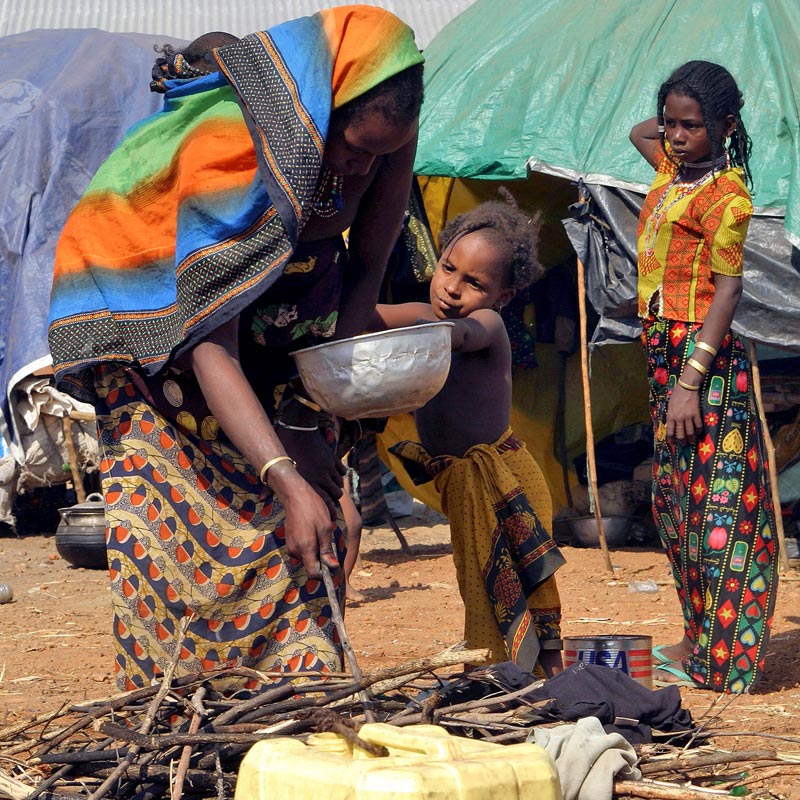MacArthur will honor former United Nations Secretary General Kofi Annan with the first MacArthur Award for International Justice, Foundation President Jonathan Fanton announced today in a speech at the National Press Club. The new Award provides Annan with $100,000 for his own work and invites him to suggest an additional $500,000 in support for an eligible non-profit organization working on international justice issues.
“Kofi Annan’s life work embodies the values of justice and human rights and the eternal hope for a humane, peaceful world that justice makes possible,” said Fanton. “It was under his leadership as Secretary General at the United Nations that the International Criminal Court was established and the Responsibility to Protect became an accepted principle for international action in the face of the worst human suffering. These critical building blocks of an effective international justice system form a legacy that will benefit the world for generations to come.”
The International Criminal Court, the world’s “court of last resort,” prosecutes individuals accused of the most heinous crimes imaginable – genocide, war crimes, and crimes against humanity – when governments fail to act. The Court’s first cases, now underway, address crimes in Darfur, the Democratic Republic of the Congo, and Northern Uganda. The new norm, “the Responsibility to Protect,” requires the international community to protect civilians in harm’s way when their own governments cannot or will not do so.
In his speech, Fanton also said the MacArthur Foundation will seek to raise the profile of international justice issues during 2008, its 30th anniversary year. He announced a series of symposia focused on international justice issues, including the International Criminal Court and the Responsibility to Protect, in New York City and at four U.S. universities. The New York City discussion will take place on March 20, 2008, immediately preceding an award ceremony at which Annan will deliver keynote remarks. Over the remainder of the year, university-sponsored symposia will be held in Chicago (DePaul University), Washington, DC (American University), Berkeley (University of California), and New Haven (Yale University). All symposia will be open to the public.
“Since our first grant to Amnesty International in 1978, the MacArthur Foundation has been committed to building a more just, sustainable, and peaceful world,” said Fanton. “The concept of fair and impartial justice is indivisible and reinforcing. Our best hopes for peace, security, tolerance, and opportunity all rest on the premise that justice will be done.”
Honoring the historical role the U.S. has played to advance international justice, Fanton suggested that it was time for the United States to rethink its position on the court and help shape it for the future. He urged the Presidential candidates to state their position on the Court publicly. He said the role of the Court extends beyond accountability for past crimes to detering those who would perpetrate genocide or crimes against humanity in the future. The International Criminal Court is one part of a strengthening network of regional courts, tribunals, and global norms that together promise to “end the era of impunity for gross human rights abusers,” said Fanton.
The MacArthur Foundation has long funded efforts to strengthen the international justice system and was an early supporter of civil society groups that advocated for the International Criminal Court. Grantmaking now focuses on ensuring the first cases before the ICC are fair and effective, include full participation by witnesses and victims, and are well understood and accepted in their countries of origin.
Annan is the first recipient of the MacArthur Award for International Justice, which honors individuals and organizations that have –
• Been transformative forces in the fields of human rights and international justice;
• Improved existing – or helped to create new – institutions, norms, and systems of international justice; and
• Demonstrated long-term commitment and made a significant personal contribution to advancing international justice.
In selecting Annan, the Foundation’s Board cited his role in the establishment of the International Criminal Court. The Treaty of Rome, which established the court, was finalized during Annan’s second year at the UN. He challenged delegates to the Rome Conference to “create a court which is strong and independent enough to carry out its task. [Its] overriding interest must be that of the victims, and of the international community as a whole. The Court must be an instrument of justice, not expedience.” He later helped ensure that the UN could refer matters to the Court, even for states that were not party to the agreement.
The Board also noted Annan’s leadership in developing the principle of the Responsibility to Protect. In 1999/2000, he urged UN member states to resolve the conflict between the principles of state sovereignty and the international community’s responsibility to respond to human rights violations and ethnic cleansing. Taking up the challenge, the government of Canada convened the International Commission on Intervention and State Sovereignty, whose report laid out the fundamentals of a new way to think about protection of civilians. Later, Annan’s UN reform document, In Larger Freedom, recommended that governments endorse the Responsibility to Protect. The concept has since been endorsed through General Assembly and Security Council resolutions.




